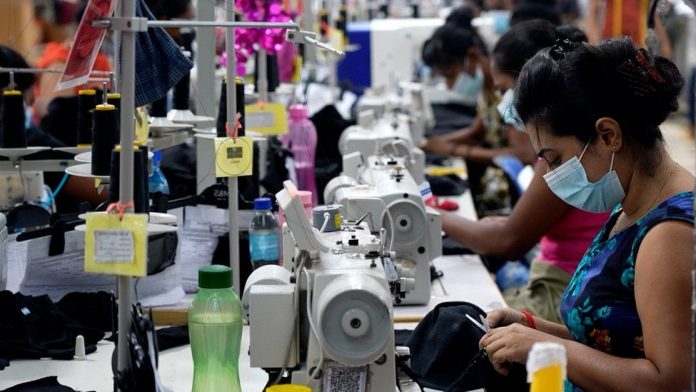It is a daily struggle for Ranjith Koralage, the boss of a Sri Lankan clothing manufacturer, to find enough diesel to run his company’s machines and steam rollers.
The chief of Kolonna Manufacturing, which is based in Sri Lanka’s central province, has been running from station to station looking for 400 litres of fuel for the generator – just enough for one day.
With long power outages, interruptions have become the order of the day in factories across Sri Lanka. Thankfully, a generator brings power back up in some factories. But the fix is temporary with limited fuel.
Mr Koralage told the BBC: “Today we survived somehow, but I don’t know about tomorrow.”
His export unit makes knitted garments for Victoria’s Secret, Puma and Levi’s, and is among dozens of clothing factories struggling to meet production targets.
Garments are the second largest foreign exchange earner for the Sri Lankan economy. The sector had just recovered from the pandemic, with export earnings increasing by 22.1% to $514m (£393m) in January 2022 compared with a year ago.
Kolonna’s order book is full for the next three to six months. But now disruptions are adding to existing worries around losing business to rivals in Indonesia, Bangladesh and Vietnam.
“If [the] government doesn’t provide fuel we have to stop production, that affects customers’ deliveries. Our clients are already asking us daily if we will be able to complete the orders in time or not,” Mr Koralage says.
Sri Lanka is facing its worst financial crisis in decades, with foreign exchange reserves shrinking by more than 16% to $1.93bn in March, central bank data showed on Thursday.
Kolonna Manufacturing is a prime example of the model of economic development that Sri Lanka wanted: a factory in the island nation’s hinterland that creates local jobs. It employs 800 workers, all from the region, including its chief executive Mr Koralage.
The unit makes garments for export and generates almost $140,000 a year for the local villages.
But it is now stuck in a vicious cycle. The dollar shortage has left the country struggling to pay for imports including food, medicine and fuel.
Even Sri Lanka’s power plants are struggling to maintain operations. Long, rolling, power cuts are crippling businesses, especially export-oriented ones that are capable of earning the much-needed dollars.
Exporters like Kolonna typically lock in orders at fixed prices and have limited capacity to absorb rising costs. While a weaker Sri Lankan rupee benefits exporters, rising costs are draining all positives.
This affects both the business and its employees. Mr Koralage says as the cost of living goes up, retaining skilled workers will be another yet challenge.
BBC
